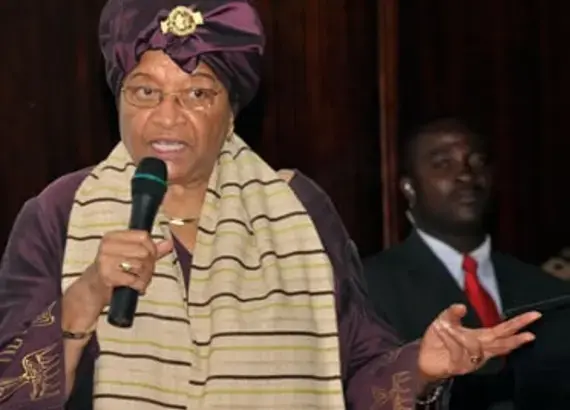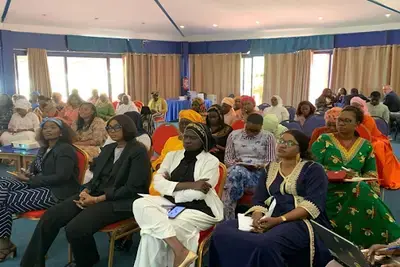
Success Story
Liberian Lawmakers Oversee Budget With Eye Toward Women and Girls
One of the world’s strongest female role models, President Ellen Johnson-Sirleaf of Liberia, joined about 150 legislators and congressional staff in Monrovia for a discussion on the difficult question of how the Liberian legislature can use its budgeting power to increase opportunities for women and girls.
“Traditional roles — that the man is the head of the household but the woman is responsible for it — are changing,” said the first woman president in sub-Saharan Africa, who is also a recipient of the Nobel Peace Prize. “Women’s leadership has also increased in society, but there is still a lot to do.”
The June 27 seminar was the second in an ongoing series organized by NDI to help lawmakers learn about a host of policy issues. Following a 14-year civil war, an all-new House and Senate were elected in 2005, meaning that even the most experienced lawmakers are only into their second terms.
Johnson-Sirleaf pointed out parts of the budget could be changed to give better opportunities to women and girls through better education, training girls in commerce and business, and improving access for women farmers to materials and markets.
The seminar focused on ways to write and analyze a national budget. Lawmakers learned how to measure whether government policies improve or entrench discrimination against women and how to check that the ways the budget raises and spends money promotes the overall goal of women’s equality, transparency and accountability.
“After all, the national budget is the most important political statement that any government has to make in any given year,” said Rep. Mariamu Fofana, chair of the Liberian House Committee on Gender and Child Development. The seminar, she said, was a way to learn how “words are translated into concrete action in the highly complex environment of the budget process.”
After analyzing the draft budget, Sen. Peter Coleman, chair of the Senate Gender, Health and Development Committee, pointed out that it included only three small projects designed specifically to help women and girls. “The national draft budget from this initial analysis does not appear to be gender sensitive and inclusive,” he said. “But rather, it increases the marginalization of women thereby diminishing their access to service and resources.”
The seminar was the first step in a series of budget oversight measures the legislature is taking for the first time. Legislators held four days of budget oversight hearings earlier this month, where ministers were called upon to answer questions about their departments’ budgets, questions shaped in part by how the budget responds to the needs of women and girls. Legislators are also opening up the comment process to citizens for the first time. This will mark the first time Liberia passes a budget that bears the imprint of the legislature and the input of the people, rather than just rubber stamping the president’s budget.
Read more:
Published August 23, 2012



